 W
WAmerica's 60 Families is a book by American journalist Ferdinand Lundberg published in 1937 by Vanguard Press. It is an argumentative analysis of wealth and class in the United States, and how they are leveraged for purposes of political and economic power, specifically by what the author contends is a "plutocratic circle" composed of a tightly interlinked group of 60 families.
 W
WThe aristocracy is historically associated with "hereditary" or "ruling" social class. In many states, the aristocracy included the upper class of people (aristocrats) with hereditary rank and titles. In some, such as ancient Greece, ancient Rome, or India, aristocratic status came from belonging to a military caste. It has also been common, notably in African societies, for aristocrats to belong to priestly dynasties. Aristocratic status can involve feudal or legal privileges. They are usually below only the monarch of a country or nation in its social hierarchy. In modern European societies, the aristocracy has often coincided with the nobility, a specific class that arose in the Middle Ages, but the term "aristocracy" is sometimes also applied to other elites, and is used as a more generic term when describing earlier and non-European societies. Some revolutions, such as the French Revolution, have been followed by the abolition of the aristocracy.
 W
WCorporatocracy is a term used to refer to an economic, political and judicial system controlled by corporations or corporate interests.
 W
WDang Guo was the one-party system adopted by the Republic of China under the Kuomintang.
 W
WA dictatorship is a form of government characterized by a single leader (dictator) or group of leaders that hold government power promised to the people and little or no toleration for political pluralism or independent media. In most dictatorships, the country's constitution promise citizens rights and the freedom to free and democratic elections; sometimes, it also mentions that all these aforementioned rights will be granted to the people, but this is not always the case. As democracy is a form of government in which "those who govern are selected through periodically contested elections ", dictatorships are not democracies.
 W
WIn political and sociological theory, the elite are a small group of powerful people who hold a disproportionate amount of wealth, privilege, political power, or skill in a society. Defined by the Cambridge Dictionary, the "elite" are "those people or organizations that are considered the best or most powerful compared to others of a similar type."
 W
WElitism is the belief or notion that individuals who form an elite—a select group of people perceived as having an intrinsic quality, high intellect, wealth, power, notablity, special skills, or experience—are more likely to be constructive to society as a whole, and therefore deserve influence or authority greater than that of others. The term elitism may be used to describe a situation in which power is concentrated in the hands of a limited number of people. Oppositions of elitism include egalitarianism, populism, and the political theory of pluralism.
 W
WThe Iron Heel of Oligarchy is a 1999 Russian drama film directed by and starring Aleksandr Bashirov. It tells the story of a man who tries to organise a revolution against the oligarchs in Russia. The film is loosely based on episodes from Jack London's 1907 novel The Iron Heel. It received a Tiger Award at the 1999 International Film Festival Rotterdam.
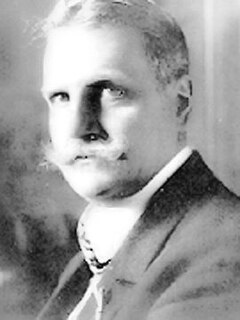 W
WThe iron law of oligarchy is a political theory first developed by the German-born Italian sociologist Robert Michels in his 1911 book, Political Parties. It asserts that rule by an elite, or oligarchy, is inevitable as an "iron law" within any democratic organization as part of the "tactical and technical necessities" of organization.
 W
WKleptocracy is a government whose corrupt leaders (kleptocrats) use political power to appropriate the wealth of their nation, typically by embezzling or misappropriating government funds at the expense of the wider population. Thievocracy means literally the rule by thievery and is a term used synonymously to kleptocracy. One feature of political-based socioeconomic thievery is that there is often no public announcement explaining or apologizing for misappropriations, nor any legal charges or punishment levied against the offenders.
 W
WThe kodjabashis were local Christian notables in parts of the Ottoman Balkans, most often referring to Ottoman Greece and especially the Peloponnese. They were also known in Greek as proestoi or prokritoi or demogerontes. In some places they were elected, but, especially in the Peloponnese, they soon became a hereditary oligarchy, who exercised considerable influence and held posts in the Ottoman administration.
 W
WLeviathan or The Matter, Forme and Power of a Commonwealth Ecclesiasticall and Civil, commonly referred to as Leviathan, is a book written by Thomas Hobbes (1588–1679) and published in 1651. Its name derives from the biblical Leviathan. The work concerns the structure of society and legitimate government, and is regarded as one of the earliest and most influential examples of social contract theory. Written during the English Civil War (1642–1651), it argues for a social contract and rule by an absolute sovereign. Hobbes wrote that civil war and the brute situation of a state of nature could be avoided only by strong, undivided government.
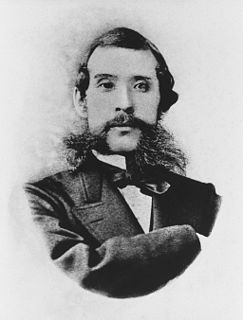 W
WThe Meiji oligarchy was the new ruling class of Meiji period Japan. In Japanese, the Meiji oligarchy is called the domain clique .
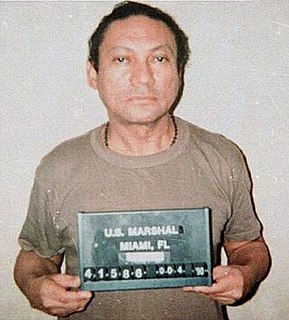 W
WNarco-state is a political and economic term applied to countries where all legitimate institutions become penetrated by the power and wealth of the illegal drug trade. The term was first used to describe Bolivia following the 1980 coup of Luis García Meza which was seen to be primarily financed with the help of narcotics traffickers. Other well-known examples are Mexico, Colombia, and Guinea-Bissau, where drug cartels produce, ship and sell drugs such as cocaine and marijuana.
 W
WNobility is a social class normally ranked immediately below royalty and found in some societies that have a formal aristocracy. Nobility has often been an estate of the realm that possessed more acknowledged privilege and higher social status than most other classes in society. The privileges associated with nobility may constitute substantial advantages over or relative to non-nobles or may be largely honorary, and vary by country and era. Membership in the nobility, including rights and responsibilities, is typically hereditary.
 W
WA political family is a family in which several members are involved in politics — particularly electoral politics. Members may be related by blood or marriage; often several generations or multiple siblings may be involved.
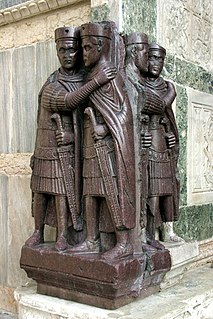 W
WThe Tetrarchy was the system instituted by Roman Emperor Diocletian in 293 to govern the ancient Roman Empire by dividing it between two senior emperors, the augusti, and their juniors and designated successors, the caesares. This marked the end of the Crisis of the Third Century.
 W
WTheocracy is a form of government in which a deity of some type is recognized as the supreme ruling authority, giving divine guidance to human intermediaries that manage the day-to-day affairs of the government.
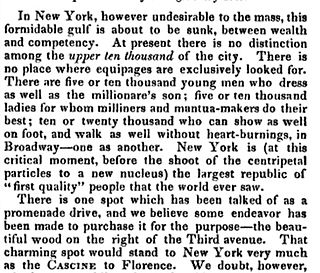 W
WUpper Ten Thousand, or simply, The Upper Ten, is a 19th-century phrase referring to the wealthiest 10,000 residents of New York City. The phrase was coined in 1844 by American poet and author Nathaniel Parker Willis. Soon, the term came to be used to describe the upper circles not only of New York, but also those of other major cities.